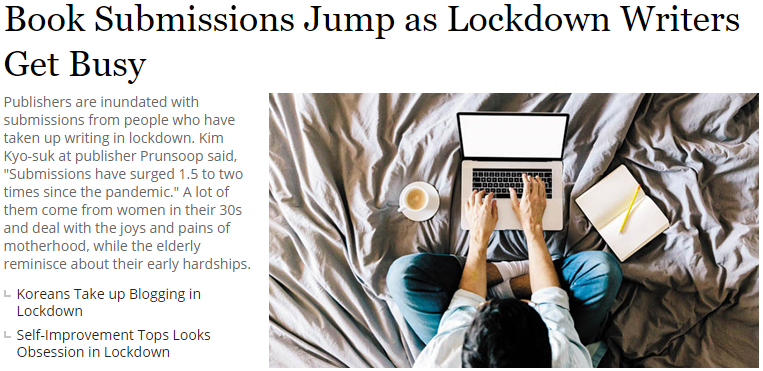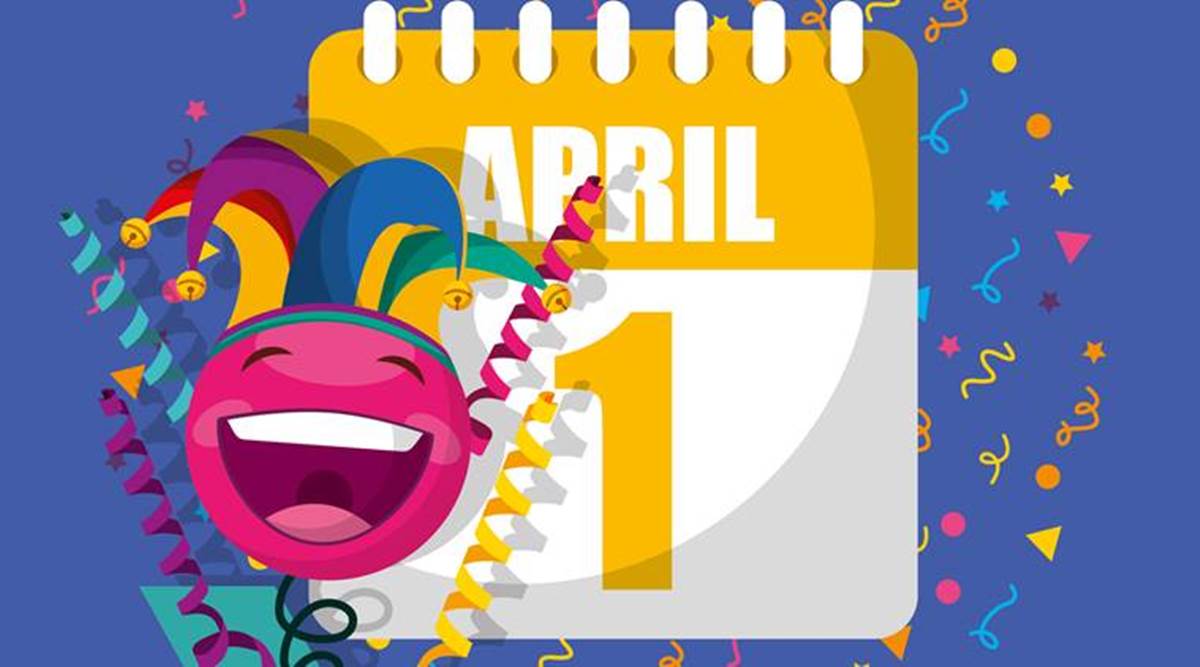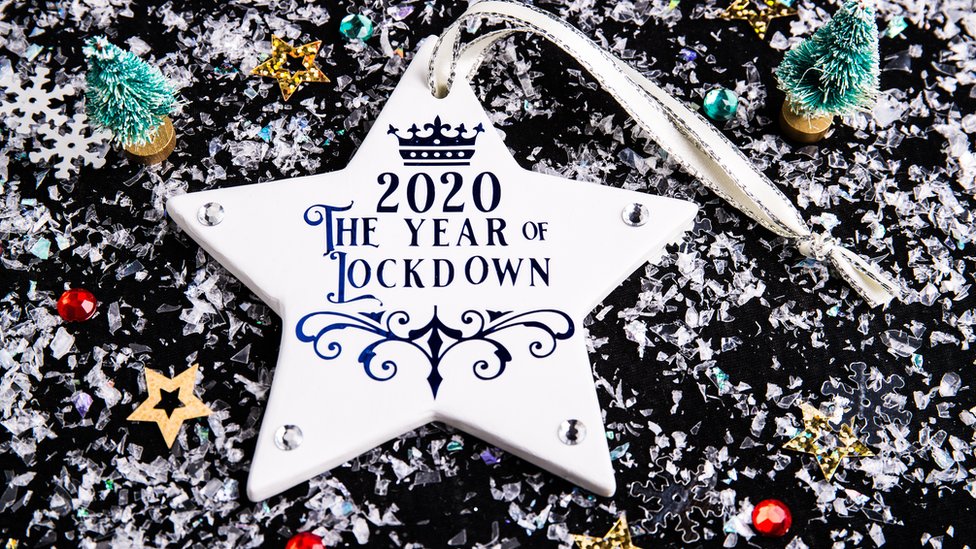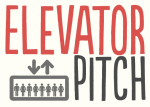December 25, 2021 (Saturday)
Merry Christmas – 메리 크리스마스

November 27, 2021 (Saturday)
- Blinkist Subscription
- St**Sm***
- Baby Girls to Outnumber Boys Soon
- Outnumber
- “Indeed, there now seems to be a slight preference for girl children.”
- Did you have a preference for a son or a daughter?
- Why did Korean culture have a preference for boys?

- Name Changing Fad Grows

- “fad” vs. “trend”
- Do you think that the name-changing phenomenon a “fad” or a “trend”?
- Have you ever wanted a different name?
- Children Need No Longer Take Father’s Surname
- What do you think?
- My children have my wife’s surname in Korea because Korean gov’t said my children had to be on a family register.
- Three reasons you don’t have good style
- Do you have good style?
- What is your style?
- What is your best style tip, your best “do”
- What is your best style “don’t”?
- 3 reasons you don’t have anything to wear and how to solve it
- Buy fewer trendy and statement pieces
- 80% basics / 20% trendy
- Your basics need to anchor your wardrobe
- What is an “anchor”?
- Dress with basics but pepper with trendy
- Get shoes that are both stylish and comfortable
- “Don’t underestimate sneakers”
- How many pairs of shoes do you own?
- Buy fewer trendy and statement pieces
- “My Fault as a Father who Failed to Raise His Child Properly” Chang Je-won Steps down from Yoon Seok-youl’s Election Campaign
- “On September 28, People Power Party lawmaker Chang Je-won apologized for his son, Chang Yong-jun, also known as the rapper Noel, who assaulted a police officer, and said, “I deeply regret my fault as a father who failed to raise his child properly, and I will take time to reflect on myself.” He also announced that he was stepping down as head of former prosecutor general Yoon Seok-youl’s presidential campaign.”
Chang’s son, Yong-jun was arrested for assaulting a police officer who tried to test him to see if he was drinking and driving on September 18. At the time, the rapper was driving without a license. In 2019, he received a suspended sentence in court for trying to switch the driver after crashing into a motorcycle while driving under the influence.” - Would you have resigned?
- How much responsibility would you feel for your adult son’s behavior?
- “On September 28, People Power Party lawmaker Chang Je-won apologized for his son, Chang Yong-jun, also known as the rapper Noel, who assaulted a police officer, and said, “I deeply regret my fault as a father who failed to raise his child properly, and I will take time to reflect on myself.” He also announced that he was stepping down as head of former prosecutor general Yoon Seok-youl’s presidential campaign.”
- Baby essentials
- Silicone bib with food catcher
- Bumbo seat
- (Don’t get crazy with the stroller)
November 20, 2021 (Saturday)
No class meeting
November 13, 2021 (Saturday)
- Blinkist: Help Me!
- “First, she realized that all the time she’d been reading self-help books, she’d never acted on the advice they gave her. This, she thought, was why her life hadn’t changed. Then the second lightbulb went on: if she started doing self-help instead of simply reading it, then she wouldn’t be unhappy. Far from it – she’d be perfect!
And so Marianne decided to read one self-help book a month for a year and implement everything she learned.” - My favorite – how she faced her fears
- My November resolution – rejection:
“When was the last time you went out looking for rejection? Chances are, it’s never crossed your mind to do this. In fact, you’re probably wondering why anyone would do such a thing.
But, as Marianne learned from the book Rejection Therapy, if you keep facing rejection, you become desensitized to it. You stop seeing it as something to avoid. As a result, you become more willing to try new things.
With this in mind, Marianne aimed for one rejection a day. But just as she was gearing up for a rejection that terrified her, something stopped her in her tracks.
The key message here is: A family tragedy made Marianne question her entire project, but seeking rejection led to significant wins.
…Weeks later, she came across a quote: “Comfort is highly overrated for individuals who want to progress in life.” And just like that, she was back in the rejection game.
Except rejection wasn’t all she got. There were unexpected yeses, too. A musician let her play his instrument, and a group of women welcomed her into their conversation. These interactions made her feel like the world was full of possibilities. But then her sister pointed out that Marianne wasn’t trying to do things that could actually change her life.
As much as she didn’t want to admit it, Marianne knew this was true. And so she took things up a few notches. She pitched articles to publications she wanted to write for and approached a man she’d been admiring in a coffee shop.
The results were completely unexpected. One of her pitches turned into a weekly column. And the man in the coffee shop? He immediately asked her on a date. These rewarding attempts at rejection taught Marianne that she’d been playing it safe in far too many areas of her life.”
- My November resolution – rejection:
- “First, she realized that all the time she’d been reading self-help books, she’d never acted on the advice they gave her. This, she thought, was why her life hadn’t changed. Then the second lightbulb went on: if she started doing self-help instead of simply reading it, then she wouldn’t be unhappy. Far from it – she’d be perfect!
November 6, 2021 (Saturday)
No class
October 31, 2021 (Sunday)
- Halloween

- Why is Halloween called “Halloween”?
- All words have histories and even reasons.
- Marathon
- The Battle of Marathon in 490 B.C.
- Pheidippides (or Philippides)
- So, why is Halloween called “Halloween”?
- What is the important lesson?
- The Monkey’s Paw (Text)
- The Simpson’s Treehouse of Horrors – The Monkey’s Paw
- satire vs homage (pronounced oh-mahj)
- The 5 Parts of a story – Exposition, Rising Action, CLIMAX, Falling Action, Resolution
- The Simpson’s Treehouse of Horrors – The Monkey’s Paw
- Blinkist: Help Me!
- “First, she realized that all the time she’d been reading self-help books, she’d never acted on the advice they gave her. This, she thought, was why her life hadn’t changed. Then the second lightbulb went on: if she started doing self-help instead of simply reading it, then she wouldn’t be unhappy. Far from it – she’d be perfect!
And so Marianne decided to read one self-help book a month for a year and implement everything she learned.” - My favorite – how she faced her fears
- “First, she realized that all the time she’d been reading self-help books, she’d never acted on the advice they gave her. This, she thought, was why her life hadn’t changed. Then the second lightbulb went on: if she started doing self-help instead of simply reading it, then she wouldn’t be unhappy. Far from it – she’d be perfect!
October 24, 2021 (Sunday)
- The Monkey’s Paw (Text)
- The Simpson’s Treehouse of Horrors – The Monkey’s Paw
- satire vs homage (pronounced oh-mahj)
- The 5 Parts of a story – Exposition, Rising Action, CLIMAX, Falling Action, Resolution
- The Simpson’s Treehouse of Horrors – The Monkey’s Paw
- Trump’s small, sad revelation of his own mortality
- Does this picture look familiar?
- Alas, poor Yorick. I knew him.

- “Hope that happens to me someday.”
- …I hope that happens to him someday soon.
- Does this picture look familiar?
- “Statistics for Poets” – Margins of Error (CNN) podcast
- Stats 101
- Do you remember 101?
- The other use of 101 – Room 101
- 1984
- Do you remember 101?
- Do you listen to any podcasts?
- While driving to and from Buan yesterday, I listened to Malcolm Gladwell’s.
- “Few rules dominate the dating world as much as ‘divide by two and add seven.’ But where did that rule even come from, and does it hold up today? Harry looks at the history of the age gaps in relationships and tries to find out whether the math actually works out for couples.”
- Is the “divide by two and add seven” rule reasonable?
- I used to use a “in the same stage of life” guideline.
- Stats 101
- Squid Game (오징어 게임)
- Choseun Ilbo: Korea’s ‘Squid Game’ Sweeps Global Netflix Charts
- Have you seen 오징어 게임?
- Do you want to see it?
- Did you play any of the Squid Game games when you were a child?
- Why do you think that 오징어 게임 has become such a worldwide phenomenon?
- Korea Bizwire: ‘Squid Game’ Exposes Social Realities, Much Like ‘Parasite’
- Korea Herald: From childhood games to iconic track suits, Netflix ‘Squid Game’ syndrome grips the world
- “The show’s childhood games may have evoked nostalgia among many South Korean viewers, but global audiences seem to be addicted to other details of the show.”
- “‘Squid Game’ seems very dramatic, but the show is a great metaphor for Korea‘s highly competitive society. Surprisingly, South Korea is not the only country experiencing intense competition. Unlike many drama series offering message of hopes and suggesting what to do, ‘Squid Game’ provides a sharp insight to our harsh reality. I think this is the reason why many viewers find it to be an emotional catharsis,” culture critic Jung Duk-hyun said in a phone interview with The Korea Herald on Tuesday.
- Yoon accused of ties to anal acupuncture specialist
- “The subject was likely a sore point for Yoon….”
- I see what they did there
- “The subject was likely a sore point for Yoon….”
- What would you do? How do you decide?
- S. Koreans to get cash back on card spending in latest COVID-19 relief fund
- “From October to the last day of this November, those who spend more than usual will get a sliver of their card spending added back to their bank accounts.
The Finance Ministry announced on Monday that anybody in South Korea who spends at least three percent more than their average monthly spending in the second quarter, will get ten percent of their extra expenses back, up to a maximum of (W100,000).” - Can you, in English (or maybe falling back into a little Korean), figure out what this means and how this would work?
- Will this affect your spending?
- Will you be able to benefit from this?
- “From October to the last day of this November, those who spend more than usual will get a sliver of their card spending added back to their bank accounts.
- Air Quality Best on Record in September
- Idiom: “on record”
- Idiom: “on the record” vs. “off the record”

- Have you noticed better air quality recently?
- “The air quality in the Seoul area was at the best on record in September partly thanks to reduced operation of coal-fired power plants in China.”
- [Yonhap] BTS’ ‘Dynamite’ makes Rolling Stone’s 500 greatest songs list
- I love lists as conversation / debate / argument starters
- BTS’s “Dynamite” Entry #346
- What is #347? Heartbreak Hotel by Elvis Presley
- [Wikipedia] Rolling Stone‘s 500 Greatest Songs of All Time
- 2004, 2010 Top Ten
- 2021 Top Ten
- [Rolling Stone Magazine] 500 Greatest Songs of All Time (2004)
- [Rolling Stone Magazine] The 500 Greatest Songs of All Time (2021)
- [USA Today] Rolling Stone updates 500 Greatest Songs of All Time list with big changes. Hint: There’s a new No. 1
- I love lists as conversation / debate / argument starters
- Discussion Graphics- 3
- Greater Seoul’s population set to eclipse other areas in 2020
- Koreans Increasingly Resent the Elderly
- Do Koreans resent the elderly?
- Why do Koreans resent the elderly?
- Do you resent the elderly?
- More Destitute Elderly Turn to Crime
- “Most of it is shoplifting of daily necessities or stealing bicycles,” a police officer said.
- daily necessities
- “The poverty rate among senior citizens is high and the coronavirus pandemic has caused available jobs to decrease as well, causing more and more elderly people to commit petty crimes to make ends meet.”
- idiom: to make ends meet
- “Most of it is shoplifting of daily necessities or stealing bicycles,” a police officer said.
- More Destitute Elderly Turn to Crime
- Do you have pity for the elderly?
- How do you like your eggs?
October 16, 2021 (Saturday)
No Class
October 9, 2021 (Saturday)
Sophie & you
- The Monkey’s Paw (Text)
- The Simpson’s Treehouse of Horrors – The Monkey’s Paw
- satire vs homage (pronounced oh-mahj)
- The Simpson’s Treehouse of Horrors – The Monkey’s Paw
- How to Think More Effectively
- “The School of Life”
- Hamlet
October 2, 2021 (Saturday)
- Chuseok, 2021
- Do you have a post-Chuseok letdown?
- Are you glad or sad it’s over?

September 25, 2021 (Saturday)
Thank you
- [Korea Bizwire] Two-thirds of Unmarried Couples Feel Satisfaction in Their Relationship: Survey
- Among the respondents, 63 percent said that they were satisfied with the relationship with their unmarried partner.
- This figure is 6 percentage points higher than the result of another satisfaction survey on the relationship with spouses that was conducted in the same year. The satisfaction rate for the relationship with spouses stood at 57 percent.
- Are you surprised?
- [Had you lived |Did you live] live together before you [got | had gotten] married?
- Do you think that couples living together before marriage is a good idea or bad idea?
Socializing Trumps Exercise in Combating Aging
September 18, 2021 (Saturday)
- Do you remember P.R.E.P.?
- One has to go….

- What if you could only live in one?
- New Lockdown Rules for Chuseok

- Do you have Chuseok plans?
- What do you usually do?
- Have coronavirus restrictions affected your Chuseok plans?
- affected vs. effected
- Are the Chuseok restrictions reasonable?
September 11, 2021 (Saturday)
- September 11, 2001, 20 years later
- Where were you?
- Does Korea have similar “where were you?” moments?
- Moments in the American psyche:
- Pearl Harbor, December 7, 1941
- FDR’ death
- JFK’s assassination
- MLK assassination
- John Lennon’s murder
- September 11
- Blinkist
- Wondrium
- The Temptations (movie)
- Beatles Anthology (mini-series)
September 4, 2021 (Saturday)
- The Temptations
- My Girl (The Temptations Sing Smokey, 1965)
- Papa Was a Rollin’ Stone (All Directions, 1972)
- Ain’t Too Proud to Beg (Gettin’ Ready, 1966)
- The Way You Do the Things You Do ( Meet the Temptations & The Temptations Sing Smokey , 1964)
- The Temptations first big hit
- I Wish It Would Rain (The Temptations Wish It Would Rain, 1968)
- (I Know) I’m Losing You (The Temptations with a Lot o’ Soul, 1967)
- Rod Stewart’s cover version
- Treat Her Like a Lady (Truly for You, 1984)
- Get Ready (Gettin’ Ready, 1966)
- Ball of Confusion (That’s What the World is Today)
- It’s September, so it’s microresolutions time!
- We still do “no TV” during weekdays, from Sunday night to Friday night. My family has kept this since May’s microresolution.
- September micro-resolutions
- How did your July micro-resolutions go?
- Minsun ->
- Oppa ->
- Joseph -> family bedtime 11:30
- (I should study Korean for 10 minutes / day)
- How did your July micro-resolutions go?
August 28, 2021 (Saturday)
- Household Debt Still Soars 2.7 Times Faster Than Income
- “Disposable household income therefore inched up only 1.2 percent to W47.3 million, which was also a record low.”
- “Disposable household income therefore inched up only 1.2 percent, which was also a record low, to W47.3 million.”
- What was “a record low”?
- Does Koreans’ increase in household debt make you nervous about the future?
- “Does Koreans’ increase in household debt…” OR “Do Koreans’ increase in household debt…”?
- “Disposable household income therefore inched up only 1.2 percent to W47.3 million, which was also a record low.”
- Discussion
- When is it okay to lie?
- (review) Scenarios 1-10
- Soooo…. How would you rate the lying scenarios from 1 to 10, from easiest (no brainer) to most difficult to (having serious misgivings about or wouldn’t) lie about?
- What are your reasons?
- Life Changing Technologies: Self-Driving Cars
- When is it okay to lie?
Blinkist – “What Are You Doing With Your Life?”
- Rising Prices Add to Mom-and-Pop Stores’ Woes
- What do you think “woes” means?
- What part of speech is it?

- “Price inflation is hitting mom-and-pop businesses particularly hard after they were already battered by the coronavirus pandemic.”
- ‘Lee Sang-bong, who has run a bar in Daechi-dong for six years, is one example. “Sales have now plummeted from W30 million to W7 million a month,” Lee said (US$1=W1,149). But Lee has to repay a W90 million loan he took out when he started it. “I should’ve closed it earlier” before losses have snowballed, he admits.’
- Mom-and-pops
- hitting (them) hard
- Has the pandemic hit your business hard?
- Snowballed
- ‘”I should’ve closed it earlier” before losses have snowballed, he admits.’
- How about personally? Has the pandemic hit you hard?
- “…many are taking out even more loans to stay afloat. Loans to mom-and-pop business owners surged from W700 trillion in the first quarter of last year to W841 trillion in the second quarter this year, and the amount is probably much higher if loan sharks are included.”
- Do you know how much W700 trillion is in terms of Korea’s GDP?
- Are you nervous for Korea’s economy?
- Are you surprised?
- Every Region of Korea Now Aging
- Pandemic Shoppers Stick with Tried and Tested

- tried and tested
- “Lockdown-addled consumers are favoring shops and restaurants they are familiar with instead of being tempted by novelty, credit card data suggest.”
- Data suggest or suggests?
- What do you think “tried and tested” means?
- Do you stick with tried and tested or do you go for new and different?
- “The main reason is that lockdown offered fewer opportunities for window shopping and leisurely exploration. The coronavirus pandemic also reduced the distances consumers traveled.”
- “Korea Credit Data analyzed the plastic transactions of 700,000 businesses and found that spending at newly opened stores declined 27.7 percent in the first quarter of this year compared to the carefree first quarter of 2019. But in stores they had already visited in the past year, purchases declined only 8.7 percent.”
- Who are they?
- Does such credit card purchase tracking make you nervous?
- Do you use cash or credit cards for your purchases?
- Are you mindful of what you purchase with your credit card?
- “Lockdown-addled consumers are favoring shops and restaurants they are familiar with instead of being tempted by novelty, credit card data suggest.”
- Sleeping longer hours correlates with IQ: study
- The good news: “It showed that, the longer hours children sleep, the higher their IQ scores.”
- The not so good news: “This was especially the case with boys. Boys who sleep more than 10 hours a night score 10 points higher than those who sleep less than 8 hours a night. However, the correlation was not found among girls.”
- Did you sleep a lot, more than average, when you were a teen?
- What did your parents think?
- What did you think?
- Did you want to sleep more or less?
- Do you sleep a lot now?
- Do you want to sleep more, less, or are you perfectly happy with your sleep schedule?
- Do you wish that you could wake up earlier or go to bed earlier?
- Women Still Spend More Time Than Men on Household Chores

- Idiom: “spend time”
- We have many idioms that use the same words for time and money.
- We even say “time is money”.
- Spend time / spend money
- Waste time / waste money
- We have many idioms that use the same words for time and money.
- How much time do you spend on household chores?
- How much time did your father spend on household chores?
- How much time did your mother spend on household chores?
- Do you think that how much time you spend on household chores is fair?
- Do you think that how much time your father spent on household chores was fair?
- School Teachers Angered by Mandatory Drug Screening

- Is this policy fair or unfair?
- Are you for or against it?
- “It was unpleasant, being treated like a potential drug addict,” she told The Korea Times. She also experienced frustration due to a lack of guidance from the education authorities on the procedure.
- How would you feel?
- “I was only told to hand in the test results by July 17, without proper guidance on where I should take the test or whether I would be able to take a leave of absence.” She had to pay for the test, which cost around 40,000 won ($35), herself after being told that it wouldn’t be covered by the government.
- Do you think that the employer or the employee should pay for the drug test?
- Have you ever taken a drug test, a drug screening?
- Tesla’s Sales Volume Continues to Increase

- Do you have Tesla envy?
- Do you want to buy an electric car?
- What would be the necessary conditions for you to buy an electric car?
- SLE – Chapter 04 – Living on the Edge
- Chosun Ilbo: Things You Don’t Know
- Writing with an accent
- The pronoun problem in business writing
- How to fix it? (What is “it”)?
- Prefer nouns to pronouns
- Edit
- Get a second set of eyes
- How to fix it? (What is “it”)?
- Numbers in English
August 21, 2021 (Saturday)
- Discussion
- When is it okay to lie?
- (review) Scenarios 1-7
- Scenarios 8-10
- Life Changing Technologies: Self-Driving Cars
- When is it okay to lie?
August 14, 2021 (Saturday)
- Discussion
- When is it okay to lie?
- (review) Scenarios 1-5
- Scenarios 6-7
- Minnesota in the Summer
- …and Winter
- Presentation
- When is it okay to lie?
August 7, 2021 (Saturday)
- Jade Cave – Chungchungbukdo
July 31, 2021 (Saturday)
- Discussion
- When is it okay to lie?
- Scenarios 1-5
- When is it okay to lie?
- When You Trap a Tiger
- by Tae Keller.
July 24, 2021 (Saturday)
- The Daily Stoic
- Epictetus on (Love and) Loss
- The Broken Pot:
- “When you are delighted with anything, be delighted as with a thing which is not one of those which cannot be taken away, but as something of such a kind, as an earthen pot is, or a glass cup, that, when it has been broken, you may remember what it was and may not be troubled… What you love is nothing of your own: it has been given to you for the present, not that it should not be taken from you, nor has it been given to you for all time, but as a fig is given to you or a bunch of grapes at the appointed season of the year. But if you wish for these things in winter, you are a fool. So if you wish for your son or friend when it is not allowed to you, you must know that you are wishing for a fig in winter.”
- July 23 – “Receive without pride, let go without attachment.”
- In the midst of the breakdown of the Roman Republic, during the civil war between Pompey and Caesar, Pompey made the decision to give control of the military fleet to Cato. It was a massive honor and hugely powerful position. But then a few days later, responding to the protests of his jealous inner circle, Pompey reversed his decision and took the command away.
- It could have been seen as an enormous public humiliation—to be given a promotion and then have it taken away. The record shows that Cato’s reaction was basically nothing. He responded to the honor and the dishonor the same way: with indifference and acceptance. He certainly didn’t let it affect his support for the cause. In fact, after the snub, he worked to rally the soldiers before battle with inspirational speeches—the very men who should have been under his command.
- That’s what Marcus is saying. Do not take the slights of the day personally—or the exciting rewards and recognitions either, especially when duty has assigned you an important cause. Trivial details like the rise and fall of your position say nothing about you as a person. Only your behavior—as Cato’s did— will.
- July 24 – “Whenever disturbing news is delivered to you, bear in mind that no news can ever be relevant to your reasoned choice. Can anyone break news to you that your assumptions or desires are wrong? No way! But they can tell you someone died—even so, what is that to you?”
—EPICTETUS, DISCOURSES, 3.18.1–2- A well-meaning friend might ask you today: “What do you think about [insert tragedy from the other side of the world]?” You, in your equally well-meaning concern, might say, “I just feel awful about it.”
In this scenario, both of you have put aside your reasoned choice without doing a single thing for the victims suffering from the actual tragedy. It can be so easy to get distracted by, even consumed by, horrible news from all over the world. The proper response of the Stoic to these events is not to not care, but mindless, meaningless sympathy does very little either (and comes at the cost of one’s own serenity, in most cases). If there is something you can actually do to help these suffering people, then, yes, the disturbing news (and your reaction to it) has relevance to your reasoned choice. If emoting is the end of your participation, then you ought to get back to your own individual duty—to yourself, to your family, to your country. - The four virtues
- The obstacle is the way.
- How I use this wisdom to stop worrying.
- A well-meaning friend might ask you today: “What do you think about [insert tragedy from the other side of the world]?” You, in your equally well-meaning concern, might say, “I just feel awful about it.”
- The Broken Pot:
July 17, 2021 (Saturday)
- Maslow’s Hierarchy of Needs (cont.)
July 10, 2021 (Saturday)
- Husband’s new job
- New job stress
July 2, 2021 (Saturday)
- TEDxEast – Nancy Duarte uncovers common structure of greatest communicators 11/11/2010
- Amanda Gorman Inauguration Poem
- Note how slowly she speaks.
- Note how slow her hand gestures are.
- Note how she aspirates the ending sounds, especially on ‘t’ , ‘d’ , ‘k’, and ‘s’ sounds
- Note how loudly and clearly she speaks
- June / July micro-resolutions
- How did your June micro-resolutions go?
- Minsun ->
- Joseph -> 1 set of Push-ups and 1 set of Wim Hof Method breathing
- How did you do with your resolutions?
- How did your June micro-resolutions go?
- July micro-resolutions suggestions for…
- Minsun ->
- Joseph -> Read When You Trap a Tiger to Joey and Sophie 10 mins / day before their bedtime. My goal is to finish the novel in one month.
- Dong-A-Ilbo (Op-ed): One’s mother tongue is his country
- I thought “this is an illogical comparison”
- …then I read the article
- Is English teaching a form of cultural colonization?
- I thought “this is an illogical comparison”
- When You Trap a Tiger
- by Tae Keller.
June 26, 2021 (Saturday)
(No Class)
June 19, 2021 (Saturday)
- Bangtan Boys Lyrics to Be Used as Language Teaching Material
- “There are barely any Korean textbooks for youngsters overseas despite surging demand for language lessons,” an Education Ministry spokesman said Wednesday. “Some 60 experts will develop a curriculum for primary and secondary schools and create textbooks based on it.” They will include plenty of K-pop content like BTS lyrics and videos.
- Are BTS songs good material to learn Korean?
- Which songs do you recommend for Korean learners?
- Which English songs would you like to learn?
June 12, 2021 (Saturday)
- Suffixes (review)
- Do you remember …
- -mania?
- -holic?
- -gate?
- pseudo- (prefix)?
- Discussion
- Do you “invest” in Bitcoin?
- quotes, “scare quotes”
- Do you know the story of the Dutch and tulipmania?
- Are we living in a time of Bitcoinmania?
- Do you “invest” in Bitcoin?
- Do you remember …
June 5, 2021 (Saturday)
- June micro-resolutions
May 29, 2021 (Saturday)
- What did you do last week?
- Young Couples Woo Each Other with Samsung, Tesla Stocks
- OPIc / speaking test question: “On your background survey you stated that you were married. How has your life changed since you’ve been married? What was your single life like? Do you miss your single life or parts of your single life?”
-
- How many questions is this question asking?
- How will you remember all the questions?
- What speaking pattern will you use to organize your answer?
- How will the tester evaluate your answer?
- What are the measurables?
- How will the tester measure the communication, “beauty contest”, part?
- Do you have the vocabulary to express what you want to communicate?
- How many questions is this question asking?
- Discussion
May 22, 2021 (Saturday)
(“Not today!“)
May 15, 2021 (Saturday)
- Young Couples Woo Each Other with Samsung, Tesla Stocks

- Did you give your boyfriends gifts while you were dating?
- Did your boyfriends give you gifts while you were dating?
- What kind of gifts?
- Do you give your spouse gifts now?
- Does your spouse give you gifts now?
- What kind of gifts?
- Have you heard of the book The 5 Love Languages?
- Words of affirmation: 23 percent
- Quality time: 20 percent
- Acts of service: 20 percent
- Physical touch: 19 percent
- Gift giving: 18 percent
- I think I’m a little sparse on the words:
- OPIc / speaking test question: “On your background survey you stated that you were married. How has your life changed since you’ve been married? What was your single life like? Do you miss your single life or parts of your single life?”
- How many questions is this question asking?
- How will you remember all the questions?
- What speaking pattern will you use to organize your answer?
- How will the tester evaluate your answer?
- What are the measurables?
- How will the tester measure the communication, “beauty contest”, part?
- Do you have the vocabulary to express what you want to communicate?
- How many questions is this question asking?
May 8, 2021 (Saturday)
- When You Trap a Tiger
- by Tae Keller.
- Speaking Skill – Speaking from Notes
- Did your school have a dress code?
- Did your schools require school uniforms?
- Does your work have a dress code?
- How do you typically dress for your job?
- Have you ever worked at a job that had a uniform?
- Can you speak from bullet points?
- Can you make a presentation only from bullet points / talking points?
- Remember PREP / PREOP ?
- Is “Remember PREP / PREOP ?” a question or imperative?
- What does “Remember PREP / PREOP ?” mean?
- OPIc test drill: Some people, mostly parents, are in favor of their children’s schools having mandatory school uniforms. Others, mostly students, are against mandatory school uniforms, thinking that school uniforms are outdated.
- What do you notice about the prompt above?
- What do the commas mean?
- How would you structure your answer?

May 1, 2021 (Saturday)
- Ginger or Marianne
- Stacy or Becky
- That vs Which
- restrictive vs non-restrictive
- defining vs extra detail
- essential vs. non-essential information
- no comma separator vs comma separators
- Standard written English vs. usage
- “In today’s usage which and that are both used to introduce restrictive clauses, those which cannot be removed from the context of the sentence, and which is also used to introduce nonrestrictive clauses, those which provide additional information but can be removed without the sentence falling apart.”
- Discussion
- “MAY DAY! …MAY DAY! …MAY DAY!”
- May resolutions
- Joey’s Birthday – 12 years ago

- Me: “I think that today is the happiest day of my life”
- Eunseon: _____________
- What was the happiest day of your life?
- When You Trap a Tiger
- by Tae Keller.
- Picasso’s works, including ‘Massacre en Corée’ arrives in Korea
- What kind of art (e.g., sculpture, painting, metal work) do you like?
- Do you have a favorite artist?
- The Picasso Special Exhibition will be held from May 1 to August 29 at the Hangaram Museum of Art at the Seoul Arts Center.


- SLE – Chapter 02 – “The More the Better”
- review
- Hindsight is 20/20.
- What does “hindsight is 20/20” mean?
- Why do we say “hindsight is 20/20”?
- Devil’s advocate (Activity C)
- What does “devil’s advocate” mean?
- Why do we say “devil’s advocate”?
- Hindsight is 20/20.
- Reminiscing about our School Days
- What does reminiscing means?
- 12) Did you ever feel burned out from studying too many hours?
-What does burned out mean?
- review
April 24, 2021 (Saturday)
- SLE – Chapter 02 – “The More the Better”
- Activity B p. 13 – Hindsight is 20/20.
- What does “hindsight is 20/20” mean?
- Why do we say “hindsight is 20/20”?
- Can you think of a business situation that you would use “hindsight is 20/20”?
- Activity C p. 14 – Devil’s advocate
- What does “devil’s advocate” mean?
- Why do we say “devil’s advocate”?
- Can you think of a business situation that you would use “devil’s advocate”?
- Reminiscing about our School Days
- What do you think reminiscing means?
1) How would you describe your social circle in high school? What types of classmates did you associate with? What types of classmates did you dislike?- What do you think social circle means?
- 2) Usually the most popular boys in North American high schools are good athletes, and the most popular girls are pretty, stylish, and sociable. What kinds of people were the most popular in your school? What kinds of people were considered “losers”? Were you popular in your class?
- 4) Did you get involved in extracurricular activities?
- What does extracurricular mean?
- 5)
- 6) Have you ever had a reunion with your former classmates?
- What does reunion mean?
- etymology
- context
- Do you think that they have changed much? Do you think that you have changed much? How?
- What does reunion mean?
- 8) Did you have boyfriends or girlfriends in high school?
- What does boyfriend mean?
- What does girlfriend mean?
- 9) Did you ever have a crush on one of your teachers?
- 11) If your high school classmates had voted for you in one of the following categories, which one would they have chosen? Who among your coworkers or social circle fits these categories now?
- Best looking
- Funniest
- Craziest
- What do you think “craziest” means in this context?
- Most likely to succeed
- Smartest
- Most athletic
- Friendliest
- Most popular
- Toughest
- Laziest
- 12) Did you ever feel burned out from studying too many hours?
-What does burned out mean? How do you know?
-Do you think that you could have gotten better results by studying less but more intensely, with higher intensity?
-Do you ever feel burned out?
–What is the verb tense?
- What do you think reminiscing means?
- Activity B p. 13 – Hindsight is 20/20.
- The Education System and Classroom Learning
April 18, 2021 (Sunday)
- Pronunciation Clinic
- ‘th’ – sounds: “voiced” and “voiceless”
- ð – the voiced dental fricative (as in “this”)
- θ – the voiceless dental fricative (as in “thing”)

- ‘th’ – sounds: “voiced” and “voiceless”
- th at the beginning of a word:
- th is voiceless /θ/ in most cases
- threat, thought, think, throw,
- th is voiceless /θ/ when followed by consonants
- three, threat
- Function words usually begin with the voiced /ð/
- as in the pronouns they, them, their, the, this, that, these, those
- and as in the adverbs and conjunctions then, there, than, thus, though, therefore, thereby, thereafter, ….
- th is voiceless /θ/ in most cases
- th in the middle of a word:
- Most (pure) English words have a voiced /ð/ in the middle (when there is a th)
- as in either, father, mother, brother, rather, further, together, weather, whether, ….
- Most loan (“foreign” English) words have a voiceless /θ/ in the middle when there is a th,
- as in cathedral, enthusiasm, ethics, mathematics, lethal, method, mythical, …
- Most (pure) English words have a voiced /ð/ in the middle (when there is a th)
- th at the end of a word:
- Nouns and adjectives usually end in a voiceless /θ/
- as in bath, cloth, breath, tooth, teeth, ….
- Verbs usually end in a voiced /ð/ when there is a th
- as in breathe, loathe, soothe, writhe, ….
- Nouns and adjectives usually end in a voiceless /θ/

- When You Trap a Tiger
- by Tae Keller was a child author and daughter of Nora Okja Keller.
- “…the story of Lily and her relationship with her aging and ill Korean grandmother, wrapped around the Korean folktales her grandmother tells her at bedtime.”
- First lines
- Do you know any first lines of books?
- Have you ever thought about writing a novel or short story?
- How would you begin?
- Famous first lines
- 100 Best First Lines from Novels – American Book Review
- 15 of the best first lines in fiction – Penguin Books
- “Happy families are all alike; every unhappy family is unhappy in its own way.” ~ Leo Tolstoy, Anna Karenina
- “It was the best of times, it was the worst of times, it was the age of wisdom, it was the age of foolishness, it was the epoch of belief, it was the epoch of incredulity, it was the season of light, it was the season of darkness, it was the spring of hope, it was the winter of despair.” ~ Charles Dickens, A Tale of Two Cities
- parallelism
- juxtaposition
- thesis & antithesis
- “Lolita, light of my life, fire of my loins. My sin, my soul. Lo-lee-ta: the tip of the tongue taking a trip of three steps down the palate to tap, at three, on the teeth. Lo. Lee. Ta.” ~ Vladimir Nabokov, Lolita
- Famously bad first line: “It was a dark and stormy night.”
- It was a dark and stormy night – Wikipedia
- Bulwer-Lytton Fiction Contest – Wikipedia
- “I can turn invisible.” (first line, When You Trap a Tiger)
- What does this first line tell us?
- Ask yourself “do I want to continue?”
The 5 Parts of a story – Exposition, Rising Action, CLIMAX, Falling Action, Resolution
April 10, 2021 (Saturday)
- Discussion
- Seven Deadly Sins
- PEWSAGL – Pick Your Poison
- Four Stoic Virtues
- Courage, Wisdom, Temperance, Justice
- Seven Deadly Sins
- Micro-resolutions
- April micro-resolutions suggestions for…
- Minsun ->
- Oppa ->
- Joseph ->
- One of my best micro-resolutions was to work on my client outreach & development for 30 minutes every day.
- Gerunds
- What are gerunds?
- Do you understand how to use gerunds?
- Do you understand where we use gerunds?
- World’s Best Cities – a Ranking
- Which are the best cities you’ve been to?
- If you could live in any city, which cities would be on your top-3 list?
- What criteria, judging reasons, do you use for best cities?
- Seoul is on the list. Where do you think Seoul ranks?
- View the complete report from Resonance Consultancy.
April 3, 2021 (Saturday)
- “April is the cruelest month” ~ T.S. Eliot
- Is April the cruelest month?
- Do certain months have certain feelings for you?
- Song: Watermelon Sugar
Tastes like strawberries
On a Summer evening
And it sounds just like a song
….
Strawberries
On Summer evening
Baby, you’re the end of June
- “September of My Years” ~ Frank Sinatra
- Easter
- The Ten Commandments (Film – 1956)
- Jesus Christ, Superstar
- Original concept recording (1970)
- Film (1973)
- The Last Temptation of Christ
- The Passion of the Christ (film – 2005)
- My Easter photo
- What are some minor Korean holidays, holidays that are not red days but Koreans have some kinds of customs, traditions, or activities?
- April 1, April Fool’s Day
- Which do you like?
- Which can you do without, dislike?
March 27, 2021 (Saturday)
- YouTube Videos Shift to Cooking as Pandemic Drags On
- Has your coronavirus TV / YouTube viewing changed during the coronavirus?
- Article: “With the coronavirus pandemic showing no signs of a letup, YouTube videos are shifting from ‘mukbang’ (a portmanteau in Korean of ‘eating’ and ‘broadcast’) to ‘cookbang’ (‘cooking’ and ‘broadcast’).’
- What does “portmanteau” mean?

- What does “port” mean?
- Etymology, word origin (in this context) :
- Lewis Carroll used “portmanteau”, which was a type of luggage, in “Through the Looking-Glass”. Humpty Dumpty explained to Alice the coinage of unusual words used in “Jabberwocky”. “Slithy” meant “slimy and lithe” and mimsy meant “miserable and flimsy”. Humpty Dumpty explained to Alice combining words in various ways: “You see it’s like a portmanteau—there are two meanings packed up into one word.”
- What does “portmanteau” mean?
- Do you know any portmanteaus?
- smog
- motel
- brunch
- Microsoft
- dramady / sitcom / romcom
- frenemy
- (Note: none of the above results in a red squiggly line underneath it.)
- Portmanteaus vs. compound words
- watermelon
- starfish
- Why are Koreans particularly keen on portmanteaus?
- What are your favorite portmanteaus?
- Where is Korea’s list of portmanteaus?
- French, Hebrew, Spanish, and Japanese have their own Wikipedia sections.
- Do you want to write our own list for Wikipedia’s Korean section?
- What words should we include?
- List of portmanteaus (English)
- S-V-O – Subject-Verb-Object. Right?
March 20, 2021 (Saturday)
- OPIc Test memories
- What went right?
- What would you have done differently?
- “What would you do differently?” (What’s the difference?)
- What are your future plans?
- The first day of Spring
- Spring Equinox
- equi + nox
- Do you like Spring?
- What’s to like?
- What’s to dislike?
- What are your spring activities?
- Spring Equinox
- St. Patrick’s Day (March 17)
- St. Joseph’s Day (March 19)
March 13, 2021 (Saturday)
- What’s your flight plan
- Remember “I want to be here. I want this.”

- Today’s practice theme: “depth, not breadth”
- Our focus today is not on content, but on the key indicators of fluency.
- General OPIc Topics
- Personal Survey Questions
- OPIc – Situation Questions Strategies and Practice
- OPIc – Answering Situation Questions
- Tell me about….
March 6, 2021 (Saturday)
- General OPIc Topics
- Personal Survey Questions
- OPIc – Situation Questions Strategies and Practice
- OPIc – Answering Situation Questions
- Tell me about….
- Homework:
- Remember an introductory statement, the first P, for your answers.
- PREP / PREOP & STAR / STARR
- Improving Fluency
- ‘Ah’-counter -‘um’, ‘ah’, other filler sounds
- Word fillers – “like”, “how do I say”, repeated fillers
- Practice speaking, recording, listening to, and fixing the same question several times.
- Do you play chess?
February 28, 2021 (Sunday)
- Review:
- Speaking test question:
- Tell me about an important holiday in your country
- How is the way people celebrate the holiday today different from the way they celebrated in the past?
- Ask yourself
- What is the main topic?
- What is the question testing?
- What speaking pattern should I use?
- Speaking test question:
When You Trap a Tiger, a Newbery Award, “the Noble prize of children’s literature”, winner.
- by Tae Keller was a child author and daughter of Nora Okja Keller.
- “…the story of Lily and her relationship with her aging and ill Korean grandmother, wrapped around the Korean folktales her grandmother tells her at bedtime.”
- Have you heard of this book, When You Trap a Tiger?
- Which Korean folktales do you know?
- Do you tell your children?
- Why do we tell our children of such folktales?
- Culture
- Which stories and folk tales are most important in and to Korean culture?
- Cultural literacy
- What is cultural literacy?
- Are you culturally literate?
- Are your children / family culturally literate?
- What should Koreans know to be culturally literate?
- Moral teaching
- What stories are part of Korean moral teaching?
- American children’s stories:
- The Little Engine That Could
- Aesop’s Fables
- The Ant and the Grasshopper
- The Boy Who Cried Wolf
- (What are the moral lessons?)
- Rip Van Winkel
- Culture
- Review last week:
- STAR & STARR Patterns
- “I’m going to give you a situation to act out…. Ask Three Questions” Questions
- Dangling Modifiers
- What is a dangling modifier?
- What’s the rule?
- Improving Fluency
- ‘Ah’-counter
- ‘um’, ‘ah’, other filler sounds
- Word – fillers
- “like”, “how do I say”, repeated fillers
- ‘Ah’-counter
- Discussion Graphics –
- REVIEW:
- OPIc Test – First Considerations
- What’s your “flight plan”?
- Where are you in your preparation schedule?
- P.R.E.P. – “PREP” – Point, Reason, Example, Point
- What’s your “flight plan”?
- Are you smarter than Sherlock Holmes?
- What’s the lesson?
- Appositive Review
- The Power of Appositives
- Appositive Practice
- – Practice thinking in and speaking with appositives
- OPIc Test – First Considerations
OPIc Test Prep
- What are the IH / AL speaking level criteria?
- Speaking Patterns
- PREP / PRE(O)P
- STAR & STARR Patterns
- “…speaking in connected paragraphs”
- “I’m going to give you a situation to act out…. Ask Three Questions” Questions
- Discussion
- Shopping Cart Theory
- WWYD: An octopus caught a bald eagle in a death grip
- How many ways can you think of to use a brick?
- The 80/20 rule
- Elevator Pitch
- Begin with the end in mind: what is your goal?
- Graphics Discussion
February 20, 2021 (Saturday)
(No class)
February 14, 2021 (Sunday)

New Year’s Celebrations
- Do Koreans do something special for Seollal, lunar new year?
- Do you or your family have special or different observations, way of celebrating or “observing”, the lunar new year?
- What do you do for solar new year, New Year’s Day?
- Speaking test question:
- Tell me about an important holiday in your country
- How is the way people celebrate the holiday today different from the way they celebrated in the past?
- Review last week:
- “I’m going to give you a situation to act out…. Ask Three Questions” Questions
- Dangling Modifiers
- What is a dangling modifier?
- What’s the rule?
- Discussion Graphics –
- REVIEW:
- OPIc Test – First Considerations
- What’s your “flight plan”?
- Where are you in your preparation schedule?
- P.R.E.P. – “PREP” – Point, Reason, Example, Point
- What’s your “flight plan”?
- Are you smarter than Sherlock Holmes?
- What’s the lesson?
- Appositive Review
- The Power of Appositives
- Appositive Practice
- – Practice thinking in and speaking with appositives
- OPIc Test – First Considerations
OPIc Test Prep
- What are the IH / AL speaking level criteria?
- Speaking Patterns
- PREP / PRE(O)P
- STAR & STARR Patterns
- “…speaking in connected paragraphs”
- “I’m going to give you a situation to act out…. Ask Three Questions” Questions
February 6, 2021 (Saturday)
- Review last week:
- Song: Norwegian Wood
- Song: Love Is Blindness
- Written for Nina Simone, but I couldn’t find that she had ever recorded it.
- (What verb tense did I use?)
- Written for Nina Simone, but I couldn’t find that she had ever recorded it.
- What’s your favorite song?
- Give a structured answer.
- Dangling Modifiers
- What is a dangling modifier?
- What’s the rule?
- gyn- word part
- comes from Greek and means “wife; woman ”
- gynecology, gynecologist
- androgyny, androgynous (andro- man, male + gyn)
- misogyny, misogynist (miso- hater, hatred + gyn)
- gynarchy (gyn + archy, “rule by”)
- comes from Greek and means “wife; woman ”
- How well did you do with your January micro-resolutions?

- Year-long resolutions don’t work. Here’s how to make 12 ‘micro-resolutions’ instead
- What is your February micro-resolution?
- Mine: throw out one item/day
- (read “throw out one item ‘per’ day”)
- Do you have a lot of “stuff”?
- How did you get so much stuff?
- Mine: throw out one item/day
- REVIEW:
- OPIc Test – First Considerations
- What’s your “flight plan”?
- Where are you in your preparation schedule?
- P.R.E.P. – “PREP” – Point, Reason, Example, Point
- What’s your “flight plan”?
- Appositive Review
- The Power of Appositives
- Appositive Practice
- Practice thinking in and speaking with appositives
- OPIc Test – First Considerations
OPIc Test Prep
- What are the IH / AL speaking level criteria?
- Speaking Patterns
- PREP / PRE(O)P
- STAR & STARR Patterns
- “…speaking in connected paragraphs”
- “I’m going to give you a situation to act out…. Ask Three Questions” Questions
- Background Survey: Running / Jogging
- Background Survey: Movies
- Background Survey: Music
- Background Survey: Reading
- Background Survey: Parks
January 30, 2021 (Saturday)
- Song: Norwegian Wood
- What’s your favorite song?
- Dangling Modifiers
- Question:
- “He introduced me around the Senate chambers, insisted that his staff share credit with us on various Illinois projects, and maintained his patience and good humor.”
- “He introduced ___, insisted ___, and maintained ___….”
- “He introduced me around the Senate chambers, insisting that his staff share credit with us on various Illinois projects, and maintained his patience and good humor.””
- He introduced ___, insisting ___, and maintained ___….”
- “Insisting that his staff share credit with us on various Illinois projects, he introduced me around the Senate chambers and maintained his patience and good humor.”
- “Insisting ___, he introduced ___ and maintained ___….”
- “He introduced me around the Senate chambers, insisted that his staff share credit with us on various Illinois projects, and maintained his patience and good humor.”
- Question:
- REVIEW:
- OPIc Test – First Considerations
- What’s your “flight plan”?
- What did we discuss as first considerations?
- P.R.E.P. – “PREP” – Point, Reason, Example, Point
- Are you smarter than Sherlock Holmes?
- What’s the lesson?
- Appositive Review
- The Power of Appositives
- Appositive Practice
- – Practice thinking in and speaking with appositives
- OPIc Test – First Considerations
OPIc Test Prep
- Background Survey: Running / Jogging
- Background Survey: Movies
January 23, 2021 (Saturday)
OPIc Test Prep
- REVIEW:
- OPIc Test – First Considerations
- What’s your “flight plan”?
- What did we discuss as first considerations?
- P.R.E.P. – “PREP” – Point, Reason, Example, Point
- Are you smarter than Sherlock Holmes?
- What’s the lesson?
- Appositive Review
- The Power of Appositives
- Appositive Practice
- – Practice thinking in and speaking with appositives
- OPIc Test – First Considerations
Background Survey Questions
- OPIc Strategies – Preparing for and Answering the OPIc Survey Test Questions
- “You mentioned in your background survey that you ….”
- Marital status
- Employment
- Living arrangements
- At home with parents
- Dormitory
- Apartment
- House
- OPIc Strategies – Preparing for and Answering the OPIc Survey Test Questions
- tl;dr – Learn some specialized vocabulary related to your life and interests
- What are your interests?
- tl;dr – Learn some specialized vocabulary related to your life and interests
- PREP Practice Questions
- P.R.E.O.P. pattern
- What’s the difference between PREP and PREOP?
- Adjectives: Order of adjectives
- Adjectives: comparatives (+er , more) and superlatives ( +est , most)
Discussion
- Jesus Christ, Superstar
- How do you telecommute?
- What do you use for meetings?
- What are the advantages?
- What are the disadvantages?
- How familiar are you with the technologies?
January 16, 2021 (Saturday)
OPIc Test Prep
- OPIc Test – First Considerations
- P.R.E.P. – “PREP” – Point, Reason, Example, Point

- Are you smarter than Sherlock Holmes?
- What’s the lesson?
- Appositive Review
- The Power of Appositives
- Appositive Practice – Practice thinking in and speaking with appositives
January 9, 2021 (Saturday)
- OPIc Test Prep – The beginning
- Goal: IH – AL
- Target OPIc Test Date: mid-March
- Epicurus Trilemma ~ The Problem of Evil
- Tri / lemma
- “Choose two”
- Engineers’ trilemma
- “Fast, good, cheap”
- “Cheap” vs “inexpensive”
- The problem of evil is the question of how to reconcile the existence of evil and suffering with an omnipotent, omnibenevolent, and omniscient God.
- omni / present
- omni / potent
- omni / scient
- omni / bene / volent
- “Is he [God] willing to prevent evil, but not able? then is he impotent. Is he able, but not willing? then is he malevolent. Is he both able and willing? whence then is evil?”
- Tri / lemma
January 2, 2021 (Saturday)
Happy New Year !
- What did you do for New Year’s Eve?
- What did you do at midnight?
- What did you do for New Year’s Day?
- Did you make a New Year’s resolution?
- Do you have goals for this year?
- personal?
- professional?
- relationship / social?
- Year-long resolutions don’t work. Here’s how to make 12 ‘micro-resolutions’ instead
- The One Strategy That Helps Me Finish Books
December 28, 2020 (Monday)
- What did you think of George Winston’s December?
- Stump the teacher

- What word stories did you like?
- What words did you find interesting?
- What does interesting mean in this context?
- Which words do you find most useful?
- Asking and Answering Negative Questions
- 5 rules for successful gift giving
- Top 10 social topics by keyword on Korean Twitter in 2020:

- 1) COVID-19
- 2) Nth Room
- 3) Self-quarantine
- 4) Social distancing
- 5) Feminism
- 6) Sewol
- 7) Emergency relief funding
- 8) Prosecution reform
- 9) Sarang Jaeil Church
- 10) Illegal abortion
- Do you have a Twitter account?
- Do you tweet?
- Are you active on Twitter?
- Do you know these Top-10 in Korea terms?
- Do you have other social media accounts?
- Are you active on those social media accounts?
- Do you have a Twitter account?
Happy New Year !
- What do Koreans do on January 1, at the New Year?
- What are you going to do?
- Why is January called “January”?
Janus, the god for whom January is named, was an important god in the Roman pantheon (pan +theos). Janus was the Roman “god of doors”, and nearly all Roman households had an altar to Janus.
What? A god of doors?

…and Endings. Every ending is a beginning, and every beginning is an ending.

Janus is often depicted (de+pict+ed) as a two-faced god with the younger boyish face looking forward to the future and the older bearded face looking back at the past.
- Do you like Christmas carols?
- What’s your favorite Christmas carol?
- What are “carols”?
- My favorite:
- Little Drummer Boy (traditional)
- Little Drummer Boy / Peace on Earth
MERRY CREEPY CHRISTMAS

- Do you know “Elf on a Shelf”?
- What does “foe” mean?
- How do you know?
- What are your clues?
- What does “foe” mean?
- Song: Jingle Bells
- Song: Santa Claus is Comin’ to Town
- Song: Rudolph the Red Nosed Reindeer
- Song: I’ll Be Home for Christmas
- Song: White Christmas
- Song: All I want For Christmas is You
December 19, 2020 (Saturday)
- Song: Are you sleeping?
- Song: Do, Re, Mi
- Stump the teacher

- What word stories did you like?
- What words did you find interesting?
- What does interesting mean in this context?
- Which words do you find most useful?
- Is “the craze for long padded bench coats finally dead“?
- Do you have a long padded coat?

- Will you be sad to see the end of long padded coats?
- Will you stop wearing a long padded coat?
- Do you like your winter coat?
- Do you like winter fashions?
- Did you read about the word “ostracize”?
- The Color of the Year
- Pantone Color Institute’s Color of the Year: Pantone’s 2021 colors of the year perfectly sum up our hopes and fears for the near future
- Pantone, named in 1962, is the company name. Why “Pantone”?
- Pantone Color Institute’s Color of the Year: Pantone’s 2021 colors of the year perfectly sum up our hopes and fears for the near future
- The Lie of the Year
- CNN Commentary: How Donald Trump orchestrated the ‘lie of the year’
- Of course the “Liar of the Year” title would have to go to Donald Trump.
- Which lie do you think he won the (unofficial) title for?
- Politifact Article: Lie of the Year: Coronavirus downplay and denial
- What would you choose for “Korean Lie of the Year”?
- CNN Commentary: How Donald Trump orchestrated the ‘lie of the year’
- Do you like Christmas carols?
- What’s your favorite Christmas carol?
- What are “carols”?
- My favorite:
- Little Drummer Boy (traditional)
- Little Drummer Boy / Peace on Earth
MERRY CREEPY CHRISTMAS

- Do you know “Elf on a Shelf”?
- What does “foe” mean?
- How do you know?
- What are your clues?
- What does “foe” mean?
- Song: Jingle Bells
- Song: Santa Claus is Comin’ to Town
- Song: Rudolph the Red Nosed Reindeer
- Song: I’ll Be Home for Christmas
- Song: White Christmas
- Song: All I want For Christmas is You
- Top 10 social topics by keyword on Korean Twitter in 2020:

- 1) COVID-19
- 2) Nth Room
- 3) Self-quarantine
- 4) Social distancing
- 5) Feminism
- 6) Sewol
- 7) Emergency relief funding
- 8) Prosecution reform
- 9) Sarang Jaeil Church
- 10) Illegal abortion
- What Taking a Multivitamin Every Day Does To Your Body
- How many ways can you think of to use a brick?
- The 80/20 rule
- Elevator Pitch
- Begin with the end in mind: what is your goal?
- Graphics Discussion
- Adjectives: Order of adjectives
- Adjectives: comparatives (+er , more) and superlatives ( +est , most)
- Asking and Answering Negative Questions
December 12, 2020 (Saturday)

- Stump the teacher
- What word stories did you like?
- What words did you find interesting?What does interesting mean in this context?
- Which words do you find most useful?
- Christmas Around the World
- Christmas Around the World
December 5, 2020 (Saturday)
- Song: Are you sleeping?
- Suneung Day
- How did you study for your suneung?
- What do you remember?
- How did you feel?
- Merriam-Webster’s WOTY – “Pandemic”
- Original article: Merriam-Webster’s WOTY 2020 “not a shocker”
- Greek roots pan, dem, ic
- pan means “all” or “every”
- dēmos means “people”
- ic is an adjective suffix
- pandemic’s literal meaning is “(describing) all the people.”
- Latin roots omni, pop, ous
- omni means “all” or “every”
- popul means “people”
- Can you guess where the English word “people” comes from?
- ous is an adjective suffix
- What does omnipopulous mean?
 – one of my favorite books
– one of my favorite books
- Ikigai – Finding Your Sense of Purpose
- Song: Do, Re, Mi
November 29, 2020 (Sunday)

- MEL Science chemistry sets
- Happy (American) Thanksgiving !!!
- Did you create, add to, or change your morning routine this week?
- What did you do differently?
- Do you feel different?
- What is the difference between “differently” and “different”?
- (Hint: what do “differently” and “different” describe?)
- What do the following mean?
- What did you do differently?
- What did you do different?
- Do you feel different?
- Do you feel differently?
- (Is this overthinking the English? Does it matter?)
- “The Miracle Morning” – Hal Elrod
- S.A.V.E.R.S. – 1 hour
- Silence
- Affirmations
- Visualization
- Exercise
- Reading
- Scribing
- S.A.V.E.R.S. – 6 minutes!
- The 80/20 rule
- Graphics Discussion
November 21, 2020 (Saturday)
- Are you a morning person?
- “early riser” vs. “late riser”
- “I’m an early riser.”
- “I like to sleep late” or “I like to sleep in.”
- Reflexive pronouns
- ———-Singular ……………. Plural
- 1st person: myself ……………… ourselves
- 2nd person: yourself …………… yourselves
- 3rd person: himself, ……………themselves
- ……………………herself, itself
- ……………………oneself
- If father wakes you up in the morning and mother wakes up father, then who wakes up mother?
- What do people in your life do for themselves?
- What do you do for yourself?
- Self-service – “help yourself”.
- Song: Are you sleeping?
- Do you have a morning routine?
- “The Miracle Morning” – Hal Elrod
- S.A.V.E.R.S. – 1 hour
- Silence
- Affirmations
- Visualization
- Exercise
- Reading
- Scribing
- S.A.V.E.R.S. – 6 minutes!
- The 80/20 rule
- Collin’s Dictionary 2020 Word of the Year
November 14, 2020 (Saturday)
- Pronunciation practice ‘r’ and ‘l’
- Song: Row, Row, Row Your Boat
- Biden – Yay or nay?
- Biden Expected to End Overtures to N.Korea – Yay or nay?
- Triskaidekaphobia and paraskevidekatriaphobia
- Yesterday was Friday 13th
- -phobia
- Do you have any phobias?
- Common phobias
- Are you superstitious?
- What is “super”?
- Are Koreans superstitious?
- How or why do you think these superstitions developed?
- What are your personal superstitions?
- Hygge
November 7, 2020 (Saturday)
- Pronunciation practice ‘r’ and ‘l’
- Song: Row, Row, Row Your Boat
- Ipdong – Yay or nay?
- “That” vs. “which”
- “That” is defining or “restrictive”
- Do NOT set that relative clauses between commas:
- My motorcycle that is in the garage is broken.
- Do NOT set that relative clauses between commas:
- “Which” is non-defining or non-restrictive.
- Use “which” when you set the clause between commas:
- My motorcycle, which is in the garage, is broken.
- Use “which” when you set the clause between commas:
- I think of “that” as necessary for identification and “which” as adding an extra detail.
- “That” is defining or “restrictive”
- Numb3rs – “Billions and Billions”
- Numb3rs: Fractions and Decimals
November 1, 2020 (Sunday)
- Halloween
- Why do we call it “Halloween”?
- Do you like Halloween?
- Did you go trick or treating when you were a child?
- Do you think that Koreans will pick up Halloween?
- What do you think of Korea borrowing other western or American holidays?
- Valentine’s Day
- Christmas
- (Solar) New Year’s Day
- Do you do anything special on those new Korean holidays?
- Halloween 2020’s Blue Moon – “Once in a blue moon”
- Elevator Pitch
- Pronunciation practice ‘r’ and ‘l’
- Song: Row, Row, Row Your Boat
October 24, 2020
- Introduction
- Introduction to Appositives and appositive practice
- The $5,000,000 comma





























































